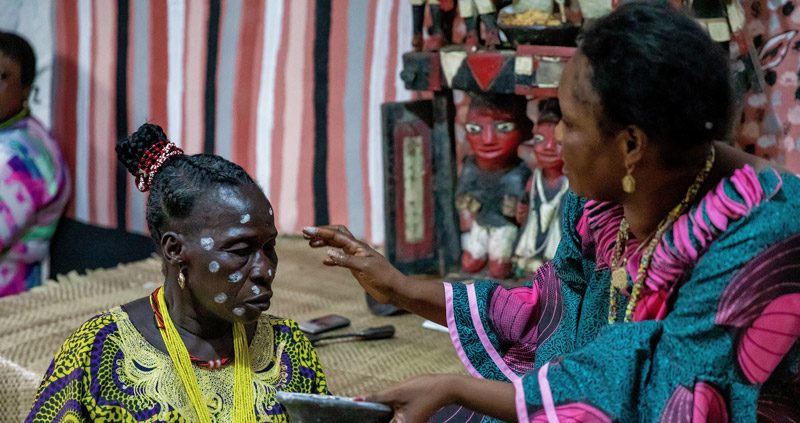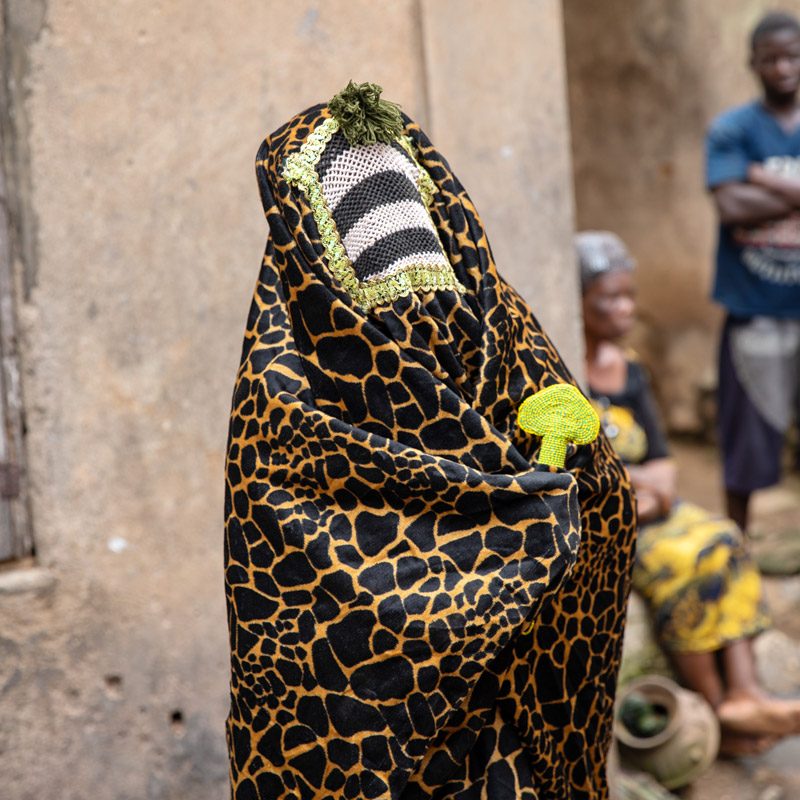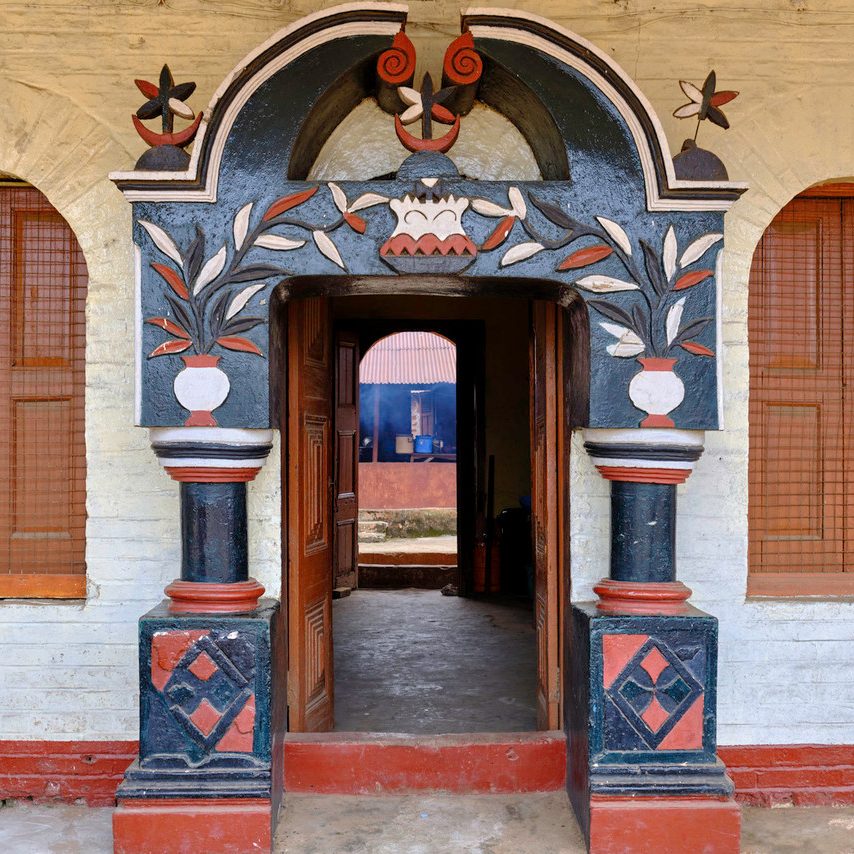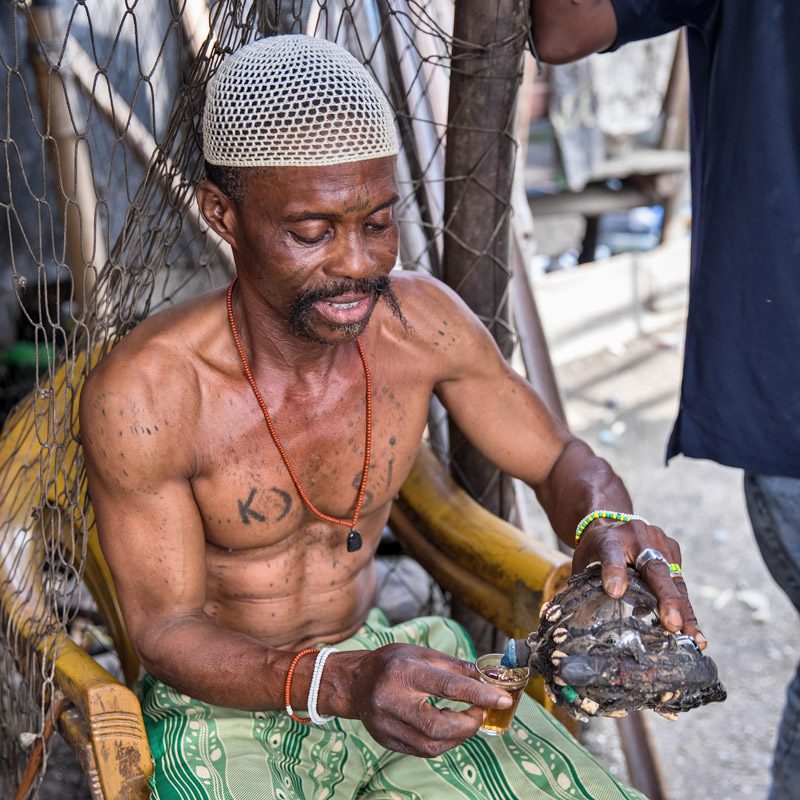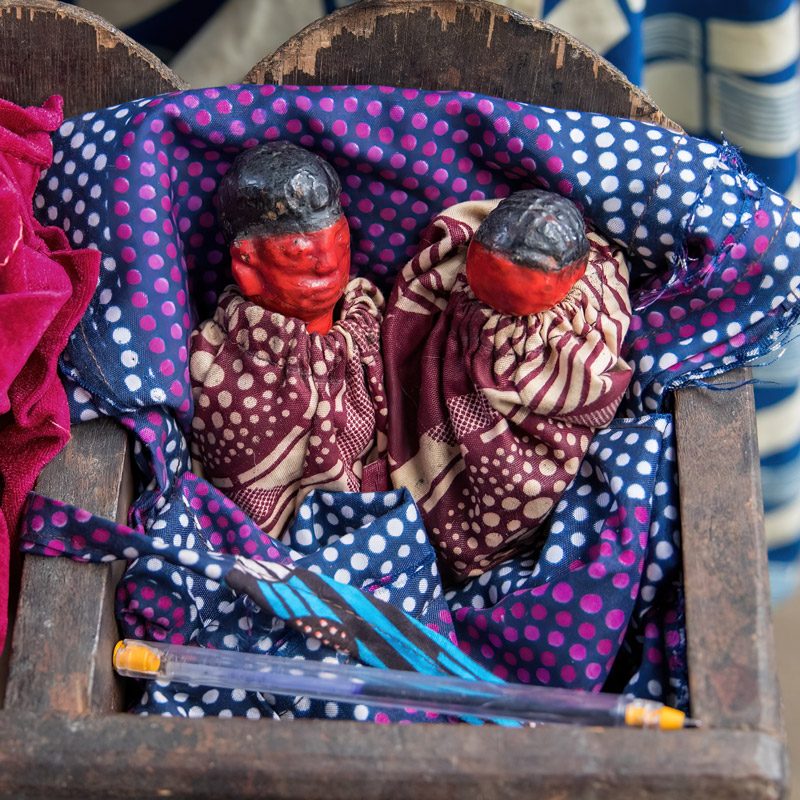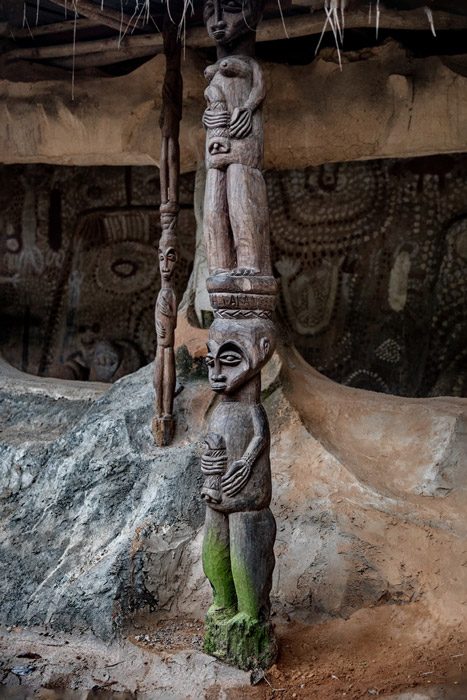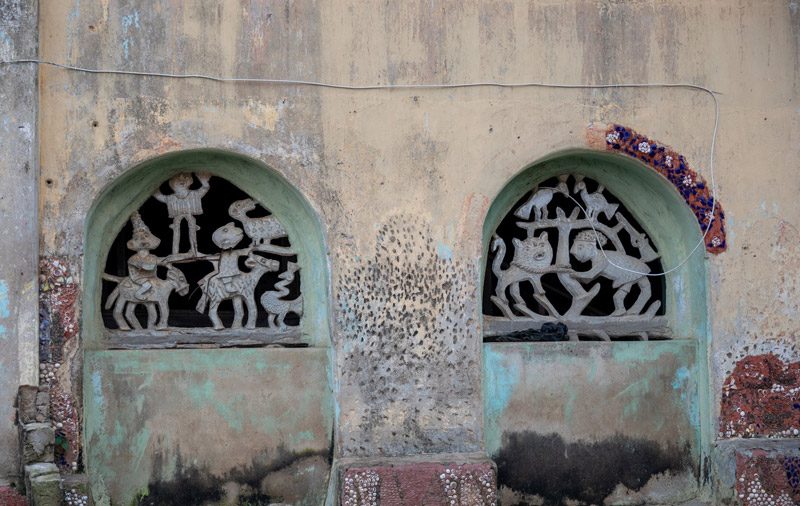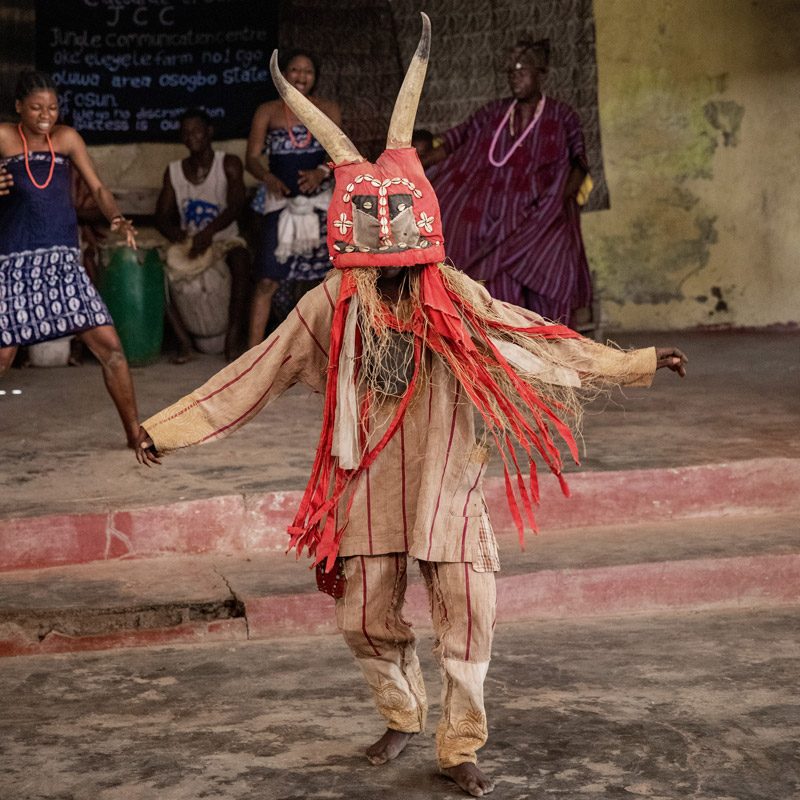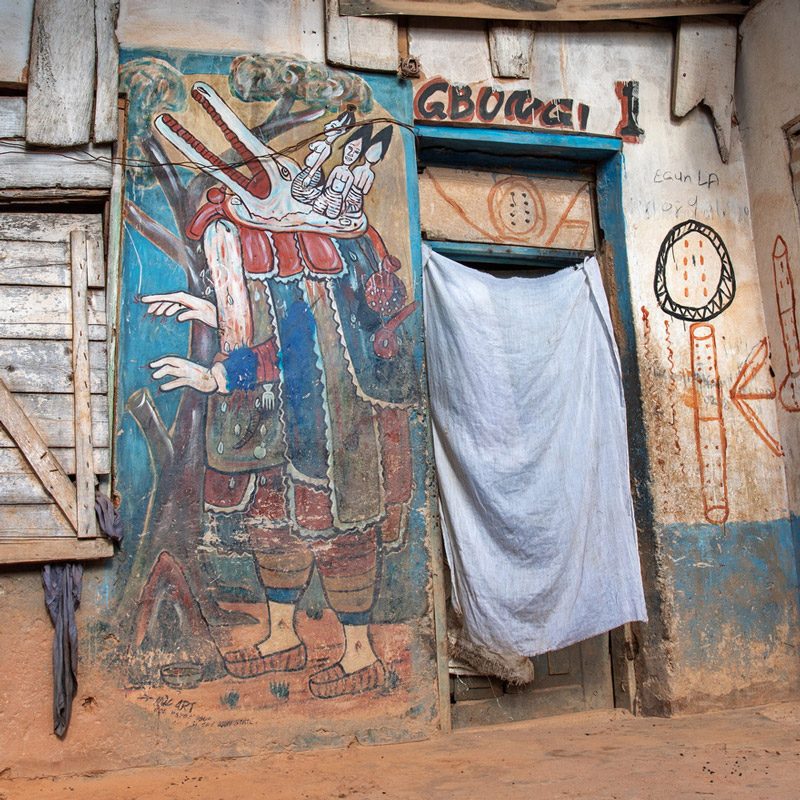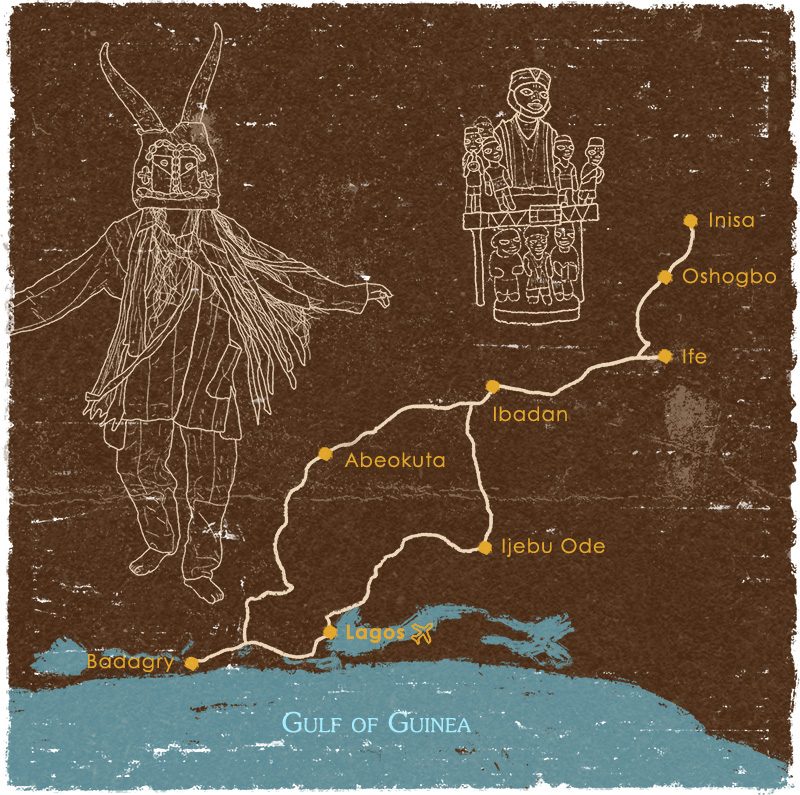Discover the highlights of this anthropological trip to Nigeria
► Exploring Makoko in Lagos
The itinerary of this anthropological trip to Nigeria will begin in the vibrant capital of Lagos, with a boat ride on traditional wooden canoes through Makoko. This working-class neighbourhood hosts a vast illegal floating settlement of around 120,000 people. A myriad of stilt houses rises from the lagoon, home to fishing communities and people living on subsistence. Here, ancestral traditions such as voodoo rituals survive despite the pressures of eviction and modernisation, just a step away from Nigeria’s wealthy elites.
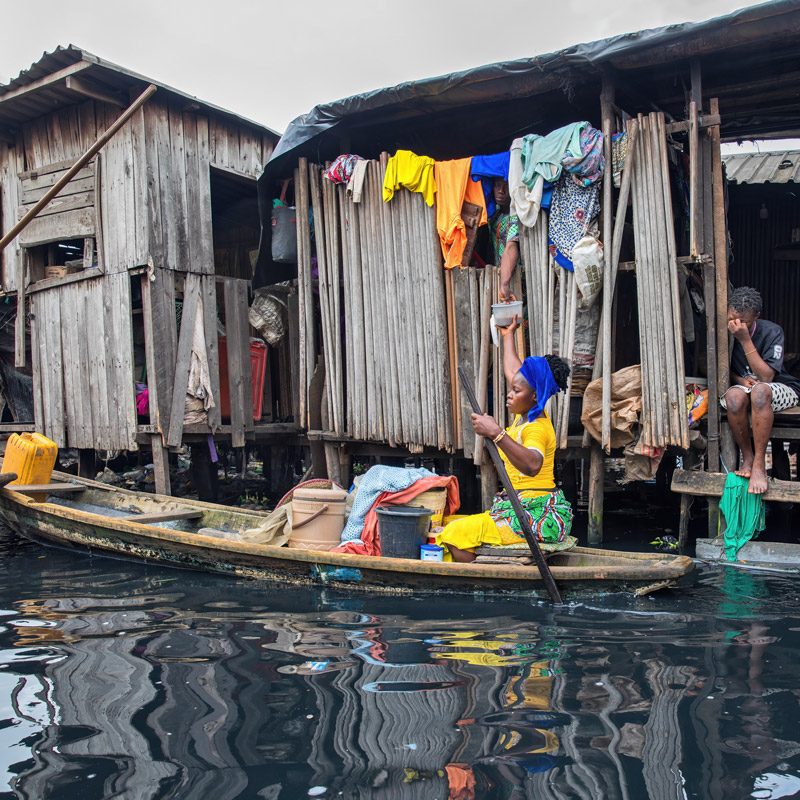
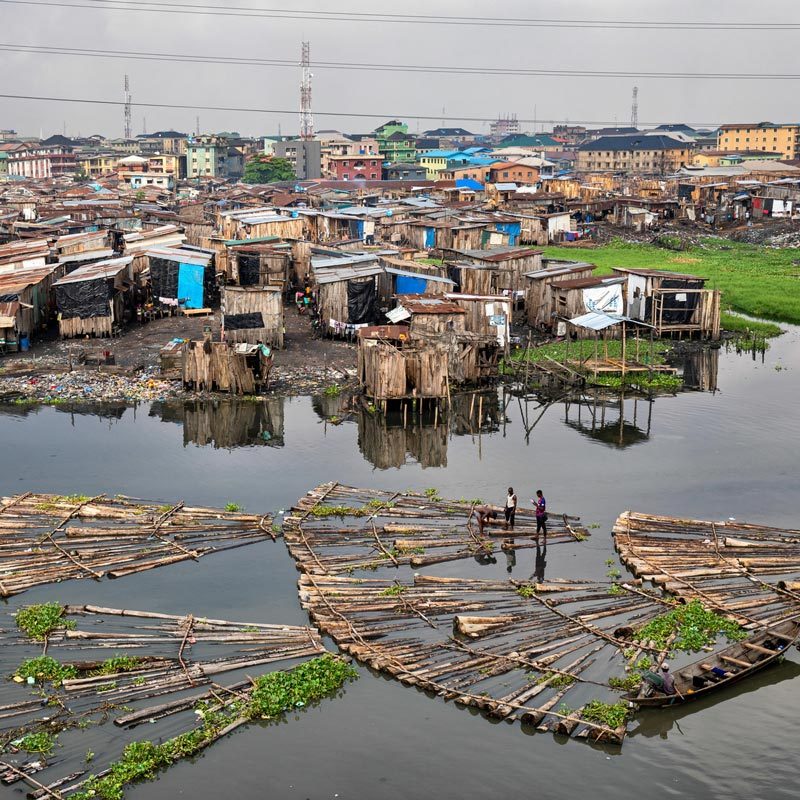
► Visiting Badagry, the main Atlantic slave trade port
Badagry still preserves symbolic sites of memory from the slave trade, which we will visit during this anthropological trip to Nigeria. Highlights of this moving and introspective visit include the old slave market and the museums that preserve testimonies and artefacts from the transatlantic trade, which deported millions to the Americas under the corrupted gaze of local rulers and the protective spirit of Orisha Yemoja.
► We will witness ceremonies and masquerades of the Orisha religion
Eyo Mask
During this anthropological trip to Nigeria, we will witness the release of the Eyo Masks, ancestor spirits worshipped by the Yorouba people on the Gulf of Guinea and in Lagos.Zangbeto Mask
In Badagry we will watch the release of the Zangbeto Spirit, the ‘guardian of the night’, amidst the chants of the followers and acrobatic performances.Egungun Masquerade
In Oshogbo, we will release of the Egungun, the spirits of the ancestors, figures respected and feared by the community.Gelede masks dance
We will observe the Gelede masks dance, a ritual honouring the primordial mother and the vital role of women in Yoruba culture.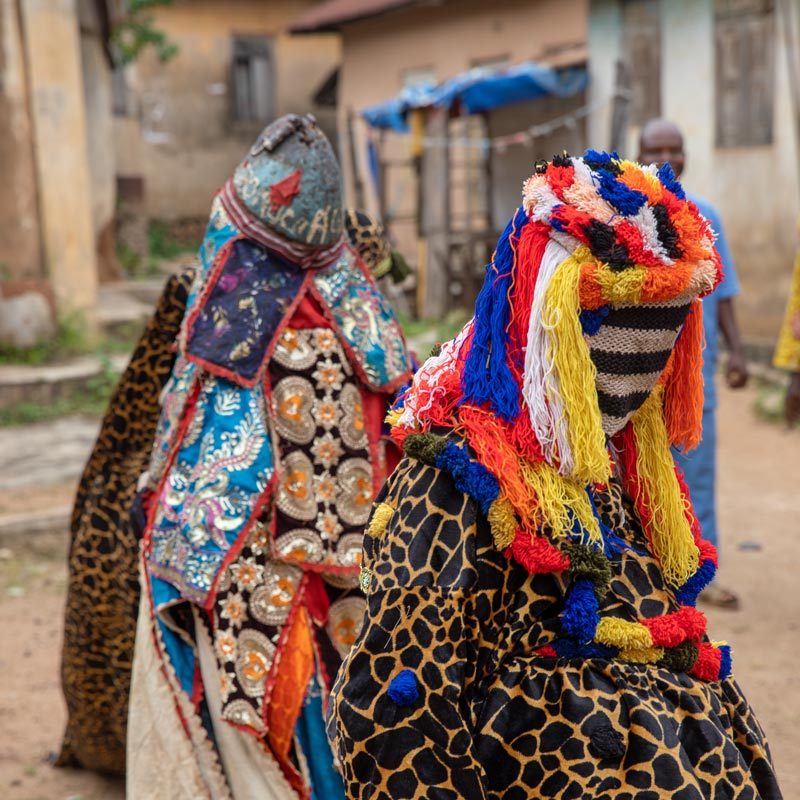
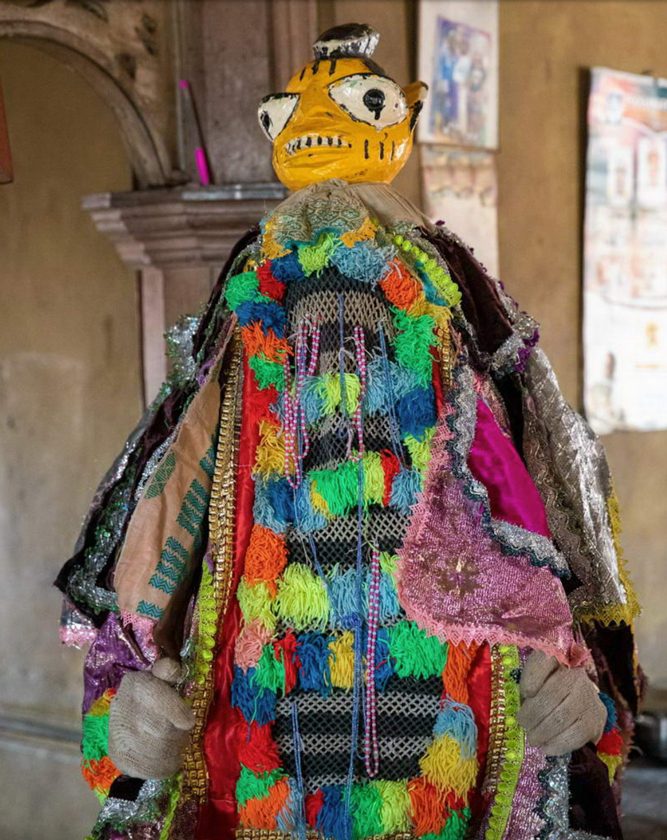
Egunuko Mask
We will witness a release of the Egunuko spirits, protective masks of the town up to 3 metres high.Twins ceremony
This anthropological trip to Nigeria will also include a twins ceremony, celebrating the unique spiritual role of twins in Yoruba society.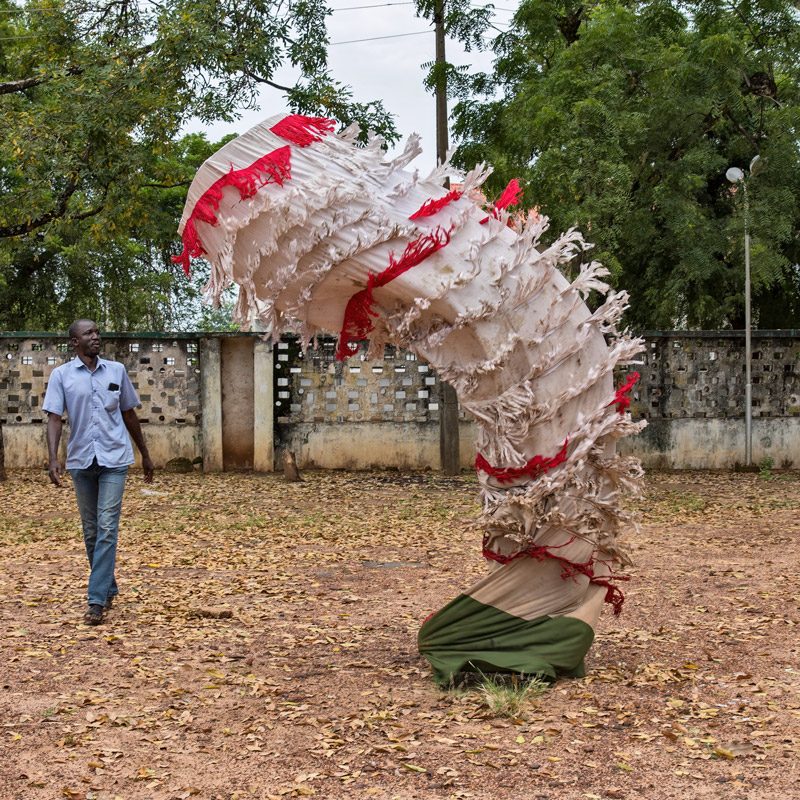
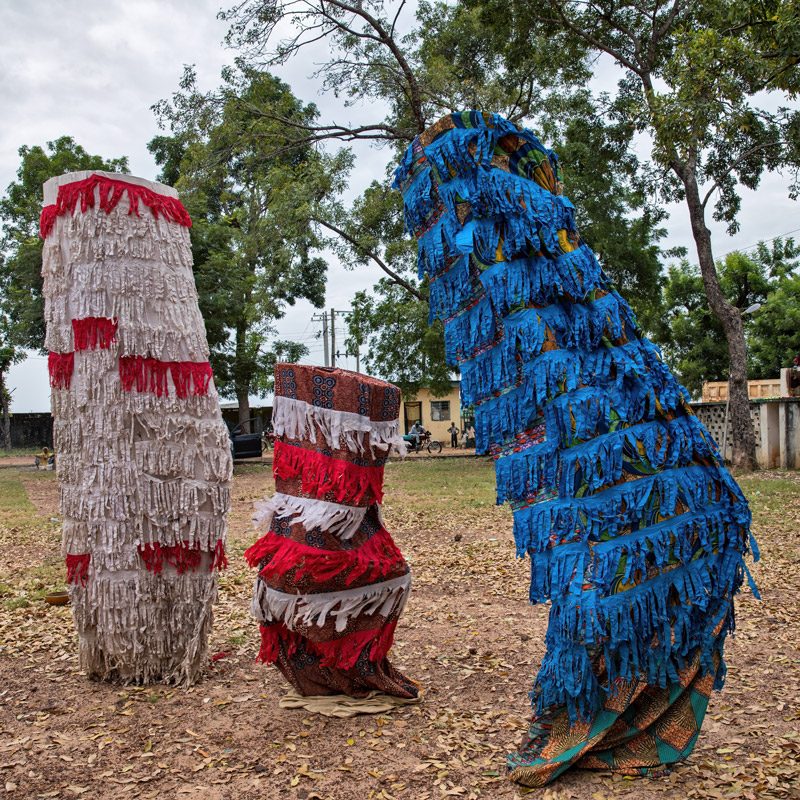
► We will explore the Yoruba country to understand their worldview
Abeokuta
During this anthropological trip to Nigeria, we will travel to Abeokuta, a city founded in the 19th century by Yoruba Egba groups fleeing invasions from Dahomey and Ibadan. Surrounded by fertile lands and dramatic rock formations, the city grew around the sacred Olumo Rock, a natural fortress used for defence and still considered a site of pilgrimage and ritual sacrifice. We will climb the rock to admire its panoramic views, the ancient clay walls and the surrounding cotton and palm plantations. Also, we will visit the fetish market, where ingredients for charms and magical potions can be found, from dried chameleons to chimpanzee limbs and medicinal plants. We will enter an Orisha temple, meet female devotees and then stroll through the city’s Afro-Brazilian architecture, admiring its historic buildings and lively atmosphere. There, we will see the royal palace of Alake, guarded by fetishes and figurines, the mosque (from the outside) and the colourful Itoke market, famous for textiles and tailors.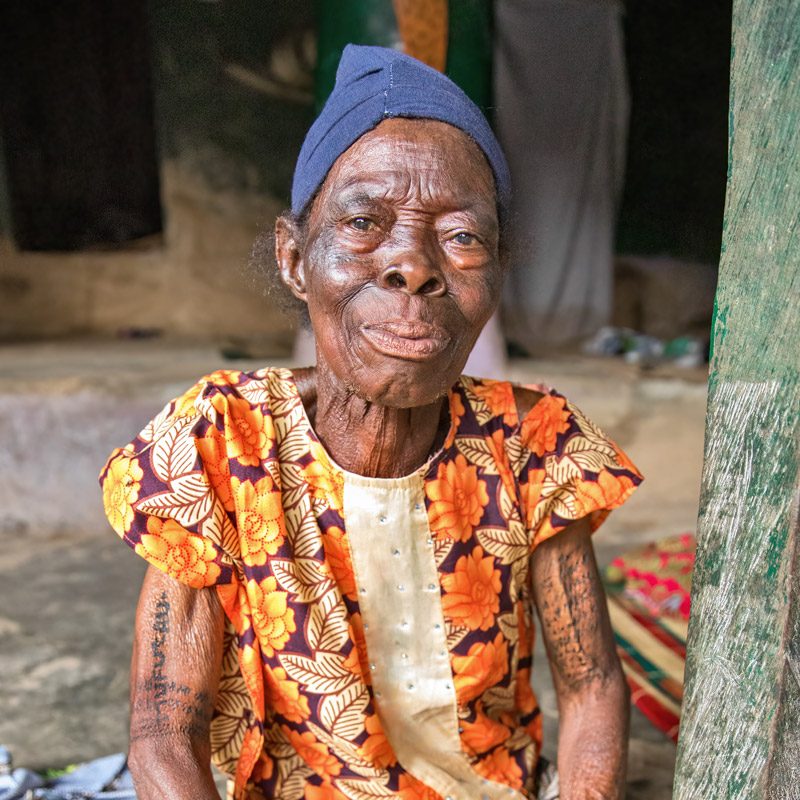
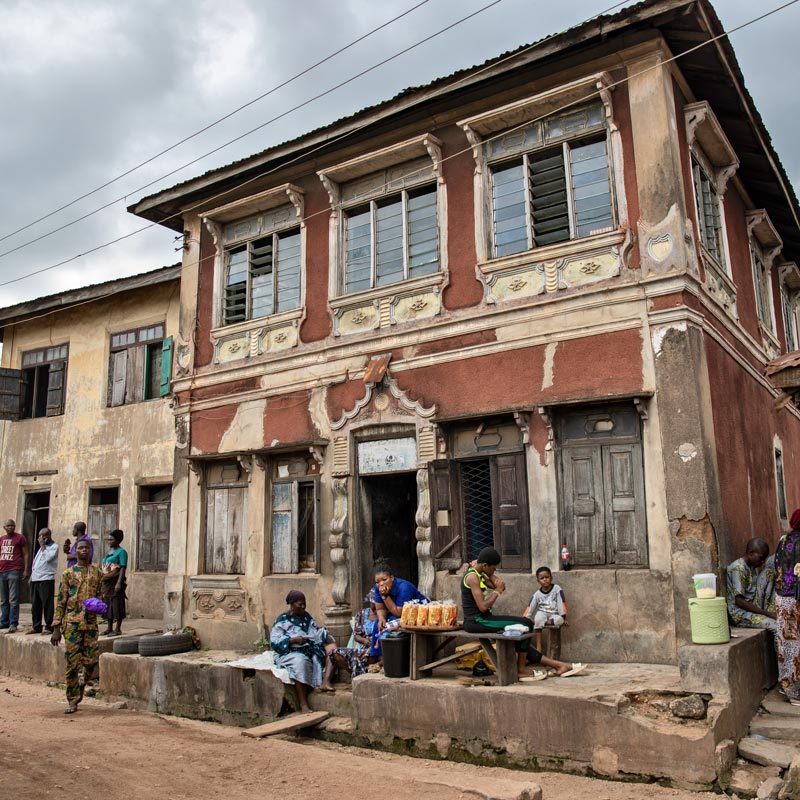
Ife
This anthropological trip to Nigeria will continue in Ile-Ife, the historic heart of Yoruba civilisation. From the 10th century, Ife developed as an advanced agricultural society under the Oba chiefs and with a vibrant pantheon of voodoo deities. Its religious and cultural influence spread as far as the Americas through the forced deportations of the slave trade. We will visit the museum with its famous Ife heads, the royal palace, the enigmatic Opa Oranmiyan monolith and the Oduduwa altar.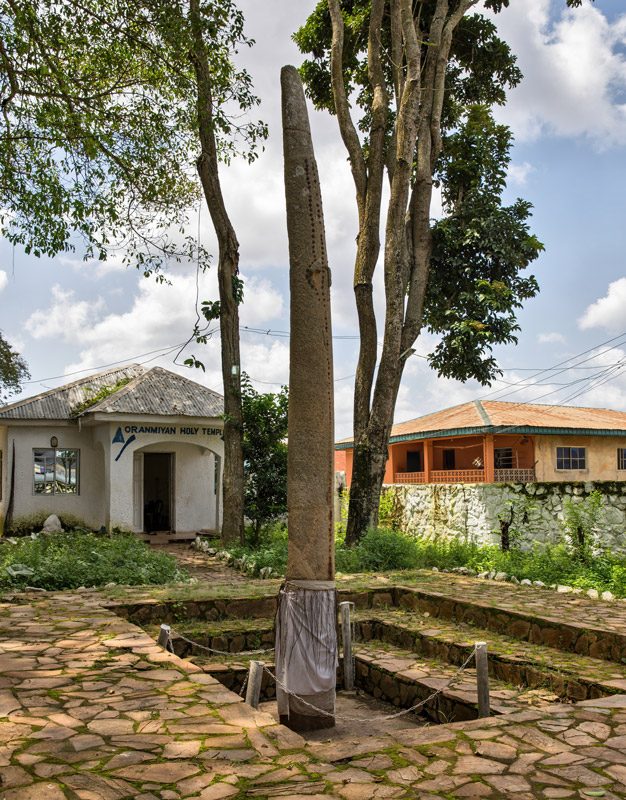
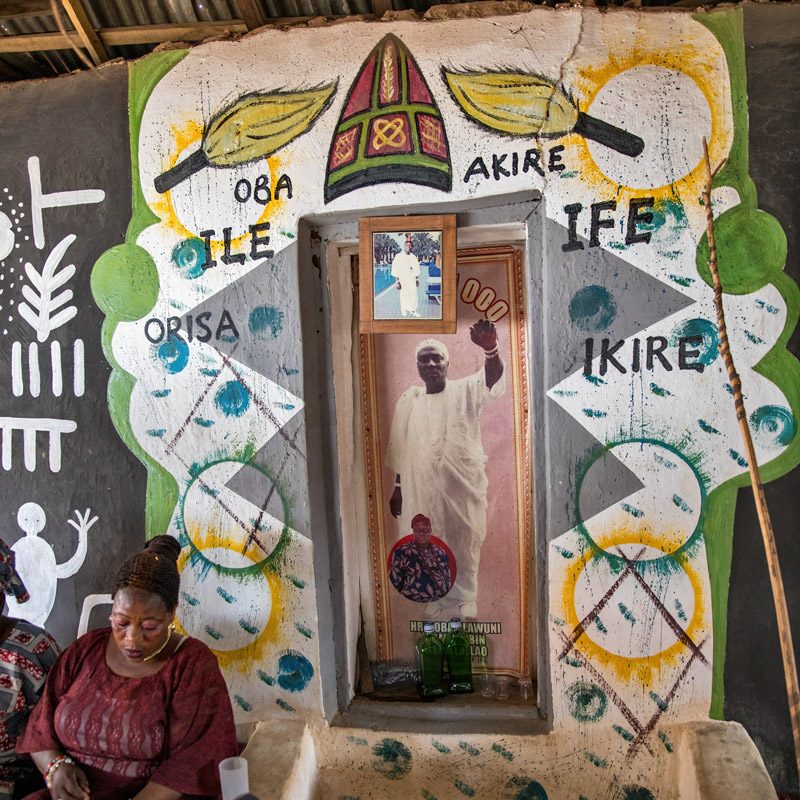
Oshogbo
Osun-Osogbo Sacred Grove
In Oshogbo we will explore the UNESCO World Heritage Sacred Forest of Osun. This enchanted forest, filled with shrines and sculptures, is dedicated to Orisha deities, especially the protective goddess Osun. Each August, thousands gather for the Osun Festival, a vibrant event of prayers, sacrifices and voodoo rituals.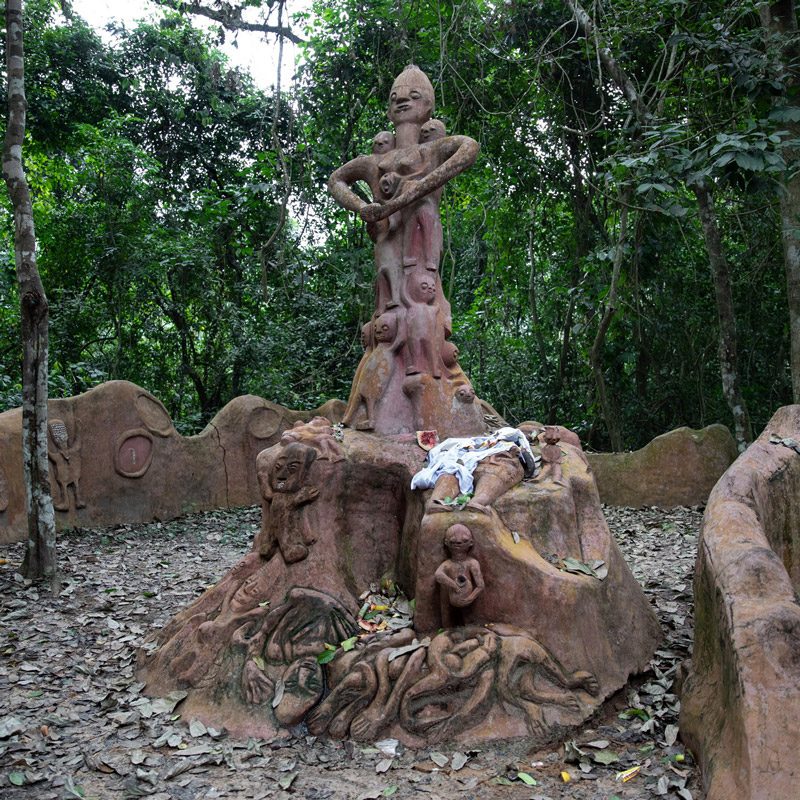

Susanne Wenger House
We will also visit the Susanne Wenger House, the museum-home of the Austrian artist who dedicated her life to preserving Yoruba traditional art.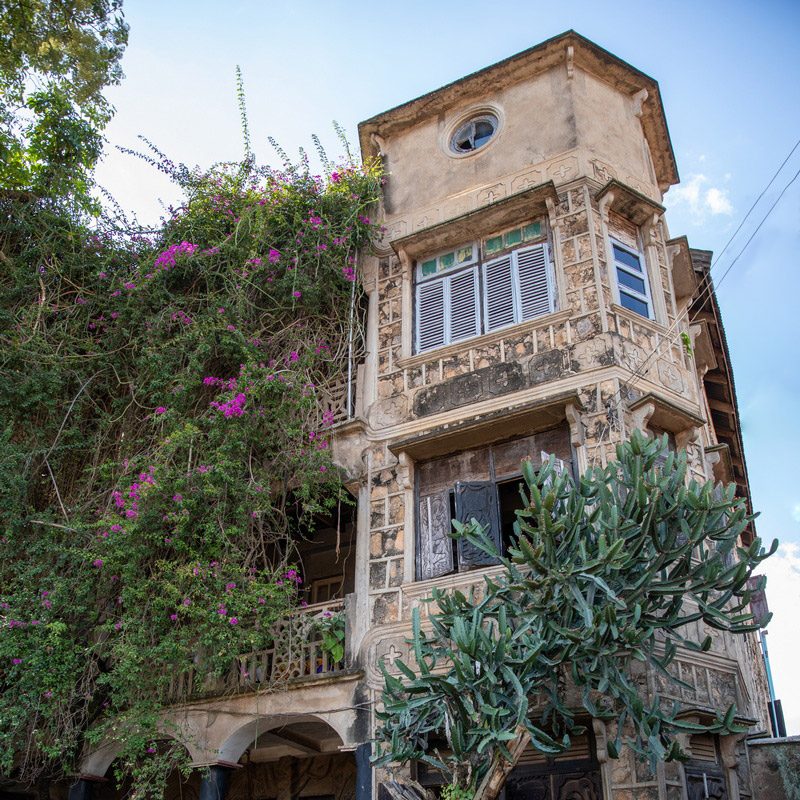
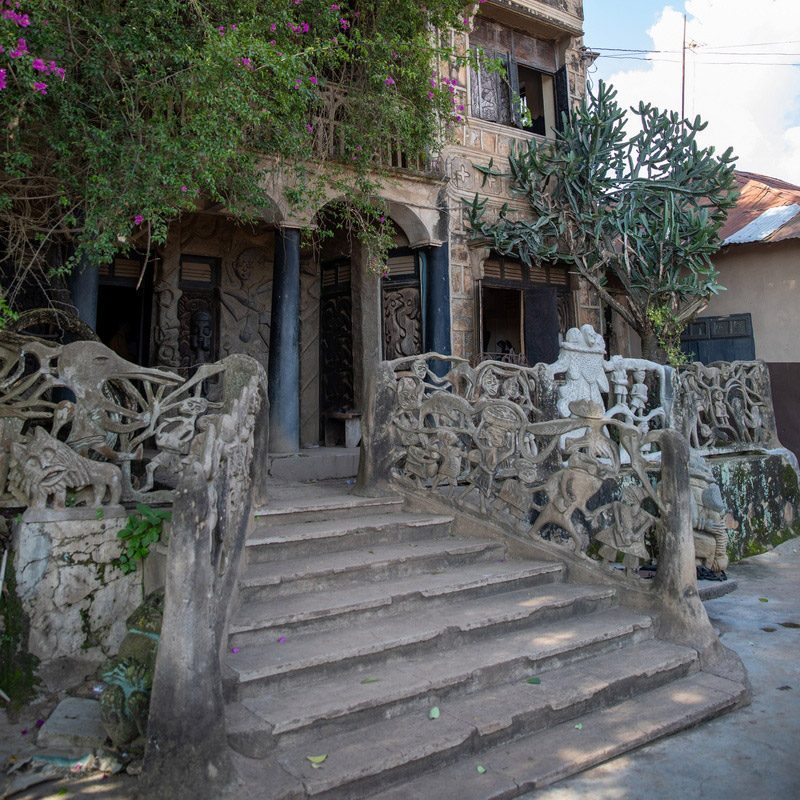
Ijebu Ode
We will end this anthropological trip to Nigeria in Ijebu Ode, a city that still preserves Afro-Brazilian vestiges, aristocratic palaces, colonial architecture and extravagant mansions from the cocoa trade era. Here we will witness a colourful horse parade through the streets, closing our journey with a unique celebration of Yoruba heritage.
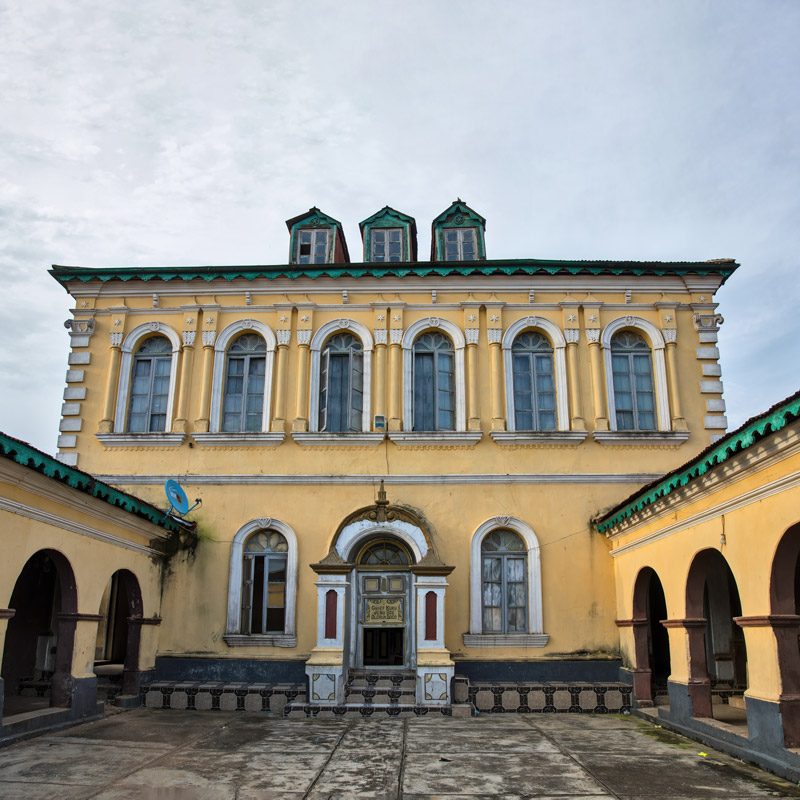
© Photos by Jordi Zaragozà Anglès, Aníbal BuenoandJorge Fernández taken during an anthropologic trip to Nigeria.
► Download the itinerary for this anthropological trip to Nigeria
Click on the button below to easily access the download form for the itinerary of this anthropological trip to Nigeria.
